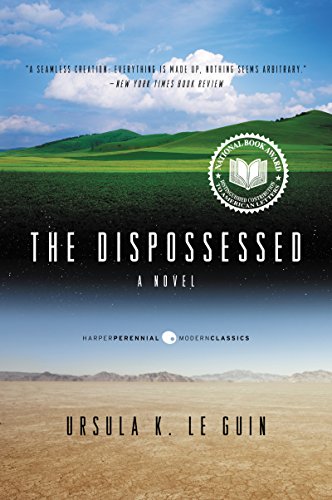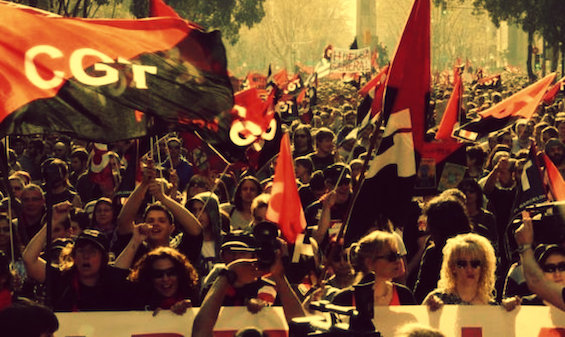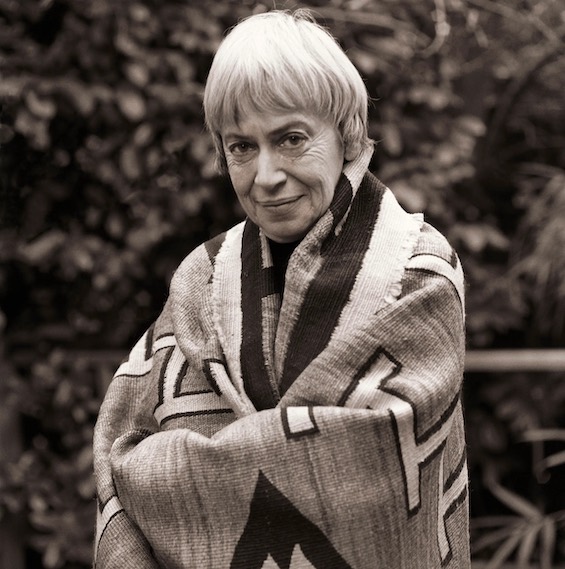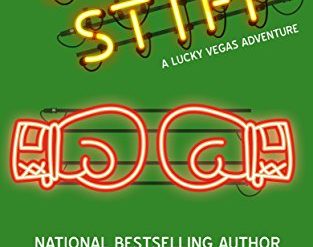
The eight novels of Ursula Le Guin’s Hainish Cycle don’t read like science fiction. They’re set on make-believe worlds, and the technology was in place in the mid-20th century. And the characters might have stepped out of an historical novel. The upshot is that the stories come across as more closely akin to fantasy. But they are science fiction despite the lack of emphasis on science and whiz-bang technology. The ideas Le Guin explores in these novels are for the most part those of social science—of economics, social psychology, and political science. The Dispossessed, which contrasts anarchism and capitalism, fits neatly into this framework.
Anarchism vs. capitalism
The twin worlds Le Guin depicts in this novel orbit the star known to Terrans as Tau Ceti. Each regards the other as its moon. One, Urras, is rich with wildlife and natural resources and is densely populated. Urras houses many separate nations, although we visit just one country there, A-Io. Its social system somewhat resembles what the 21st-century United States promises to become if economic inequality continues to drive an ever-deeper wedge between rich and poor. The other world, Anarres, is a cold, desolate place. Its small population descended from settlers who broke away from Urras 200 years ago to found a perfect anarchist society.
The Dispossessed (Hainish Cycle #6 of 8) by Ursula K. Le Guin (1974) 315 pages ★★★★★
Winner of the Hugo and Nebula Awards for Best Novel

A scientist on the verge of a Unified Field Theory
Le Guin’s protagonist is a physicist named Shevek. (Everyone on Anarres has a single, unique name, assigned at birth by a computer.) Shevek has gained fame by disproving some of the foundational concepts of physics on both worlds. He is now nearly finished with a General Temporal Theory—the Hainish equivalent of what we know as Unified Field Theory. Through a correspondent on Urras, he has gotten hold of a copy of the Theory of Relativity developed centuries ago by Ainsetain (Einstein) on Terra. And Einstein’s insights, combined with those from scientists on Urras, have brought him to within a hair’s-breadth of success.
Because Shevek’s goal is in sight, a leading university in A-Io has invited him to join the faculty. Shevek knows that the invitation has come at the behest of the country’s government, because they believe his General Temporal Theory will unlock the way to instantaneous interstellar travel. This will revolutionize commerce among worlds because “interstellar travel is so costly and so slow.” And thus A-Io will become the leading force among all the dozens of planets in the Hainish confederacy.
In The Dispossessed, we learn about Shevek’s life on Anarres in chapters about his youth, his long life-partnership with a woman, and his challenging career in chapters that alternate with those that recount his experiences on Urras.
Two contrasting social systems
Anarchism
The people of Anarres revere Odo, the philosopher who expounded the anarchist theory that guides them more than a century after her death. Their society is a perfect expression of pure communism, as Marx might have envisioned it. No government has withered away, of course, because none ever existed there. But all share equally in the little that their inhospitable planet has to offer. No one goes hungry, unless they all do. Everyone shares in the most difficult and unpleasant work required to feed, house, and clothe them all. There is no money. All goods and services are freely available.
There is no rank on Anarres
There is “no rank, no terms of rank, no conventional respectful forms of address.” Odonians use no possessive pronouns. Thus, one’s mother is “the mother.” They sleep in dormitories from an early age. “Aside from sexual pairing there was no reason for not sleeping in a dormitory. You could choose a small one or a large one, and if you didn’t like your roommate you could move to another dormitory. . . Privacy was a value only where it served a function.”
Anarres is not utopia
Yet, as Le Guin makes clear, Anarres is no utopia. Society suffers from all the ills that have come to light in every era when revolutionaries have attempted to govern their actions by the precepts of anarcho-syndicalism. Simply put, some people are more equal than others. And a sprawling bureaucracy called the PDC, or Production and Distribution Coordination controls society on Anarres. How else might jobs be filled and local shortages addressed in a society of 20 million people?
And therein lies the fatal flaw in Anarres’ anarchist theory. The PDC is “the unadmitted, inadmissible government that rules the Odonian society by stifling the individual mind.” As Shevek’s revolutionary friend Dap insists, “Odo said that human solidarity is our one hope. But we’ve betrayed that hope. We’ve let cooperation become obedience.” And the way the head of Shevek’s department has managed to stifle his career is proof that rot has crept into the system.
Aristocratic-oligarchic capitalism
Odonians regard the Urrasti as propertarians, engaged in endless profiteering. On Urras, where “aristocratic-oligarchic capitalism” is the order of the day, everything and everyone has a price. And for most, the price of comfort is far out of reach. A tiny elite of aristocrats monopolize government power. The vast majority of Urrasti in A-Io struggle to make ends meet. And because he had had the temerity to write letters to scientists on Urras, in hopes of exchanging ideas, Shevek was now an outcast, an “egoist,” a “profiteer,” condemned to exile. He wrote “letters to propertarians, to subjects of governments founded on the inequity of power, to individuals who were inevitably exploited by and exploiters of others, because they had consented to be elements in the State-Machine.”
For Shevek, “all the operations of capitalism were as meaningless to him as the rites of a primitive religion, as barbaric, as elaborate, and as unnecessary.”
Is this a realistic portrayal of these two societies?
The Dispossessed is a beautifully written story and engaging from start to finish. Le Guin’s speculations about social theory are thought-provoking. In the end, though, it’s clear that neither A-Io’s capitalist system nor the anarchism of Anarres is credible. In the case of the former, it’s highly unlikely that the extreme levels of inequality she describes wouldn’t have led to revolutionary change decades or centuries earlier. History shows that such levels of social injustice never endure indefinitely. All too often, they lead to tyranny.
The anarchism prevailing on Anarres seems equally hard to swallow. No government, no social system, can repeal human nature. It’s simply not credible that nearly everyone on Anarres would be as well-behaved and accepting of hardship as Le Guin portrays them. Anarchism won’t work as a way to organize a society of millions because . . . well, because anarchists are cantankerous souls who behave exactly the way they feel like behaving. In other words, they’re human.
About the author

The literary career of Ursula Kroeber Le Guin (1929-2018) spanned nearly sixty years, from her first appearance in print in 1959 until the end of her life in 2018. She wrote 21 novels as well as a torrent of short stories and poems and numerous other forms of literary expression. Her work attracted intense critical attention. Le Guin was born in Berkeley, California, the daughter of the famous (not to say notorious) anthropologist Alfred L. Kroeber (1876-1960), whose subject was the native peoples of the state.
For more reading
I’ve also reviewed Le Guin’s earlier novel, The Left Hand of Darkness – Hainish Cycle #4 of 8 (Ursula Le Guin’s classic gender-bending novel), which also won both the Hugo and Nebula Awards for Best Novel.
For another science fiction writer’s take on a future anarchist society, see The Immortal King Rao by Vauhini Vara (A novel dystopian story that explores anarchism).
For more good reading, check out:
- The ultimate guide to the all-time best science fiction novels
- 10 top science fiction novels (plus lots of runners-up)
- Seven new science fiction authors worth reading
- The top 10 dystopian novels reviewed here
And you can always find my most popular reviews, and the most recent ones, plus a guide to this whole site, on the Home Page.


























